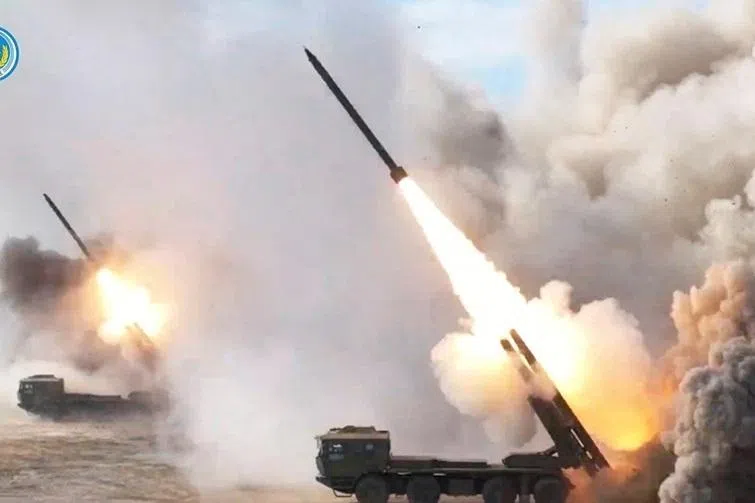Lessons from Ukraine: Russia might fall into decline by going against global sentiment
As the Russia-Ukraine war rages on, Huang Yuan notes that the US response to Russia may well be an indication of its approach if a conflict were to break out in the Taiwan Strait between mainland China and Taiwan. He also cautions that any military action that disregards global sentiment may well lead to the invading state coming apart and its leader falling from grace.
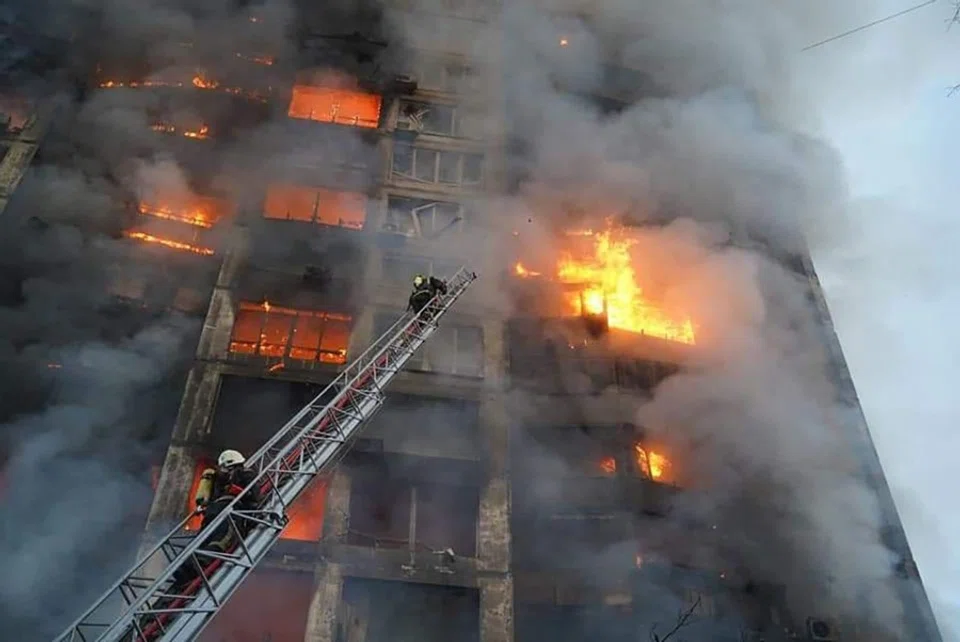
On 24 February, four days after the closing ceremony of the Beijing Winter Olympics, Moscow launched a military invasion of Ukraine - a sovereign country - while calling it a "special military operation" in the Donbas region in eastern Ukraine. Subsequently, Russian troops attacked Ukraine from three sides. It conducted airstrikes over the Ukrainian capital Kyiv from the airbase of Belarus in the north; sent armoured vehicles across the Russia-Ukraine border from the east; and from the south, it landed its troops in the port city of Odessa on the Ukrainian coast with the Black Sea.
Ukraine a nation of its own
Russian President Vladimir Putin states that Ukraine is an "illegitimate country" that exists on land that is historically and rightfully Russian, and never had stable traditions of real statehood.
Ukraine and Russia share roots stretching back to the first Slavic state - Kievan Rus - a medieval empire founded by Vikings in the 9th century. But the historical reality of Ukraine is complicated, comprising a thousand-year history of changing religions, borders and peoples. The traditionally recognised year of Kyiv's establishment is 482 CE, and in 1982 the city celebrated its 1,500th anniversary. While archaeological evidence suggests that the city was founded only in the 6th or 7th century, these records nonetheless are a few hundred years earlier than that of Moscow's. Both Russians and Ukrainians claim Kyiv as the birthplace of their modern cultures, religion and language.
After the Soviet Union was established in 1922, East Ukraine joined the Soviet Union while West Ukraine was ceded to Poland, in accordance with the Peace of Riga signed between Poland and the Soviet Union. When the Second World War broke out, Poland returned West Ukraine, but the whole of Ukraine was later captured by Germany. Ukraine was reunited with the Soviet Union after Germany lost the war.
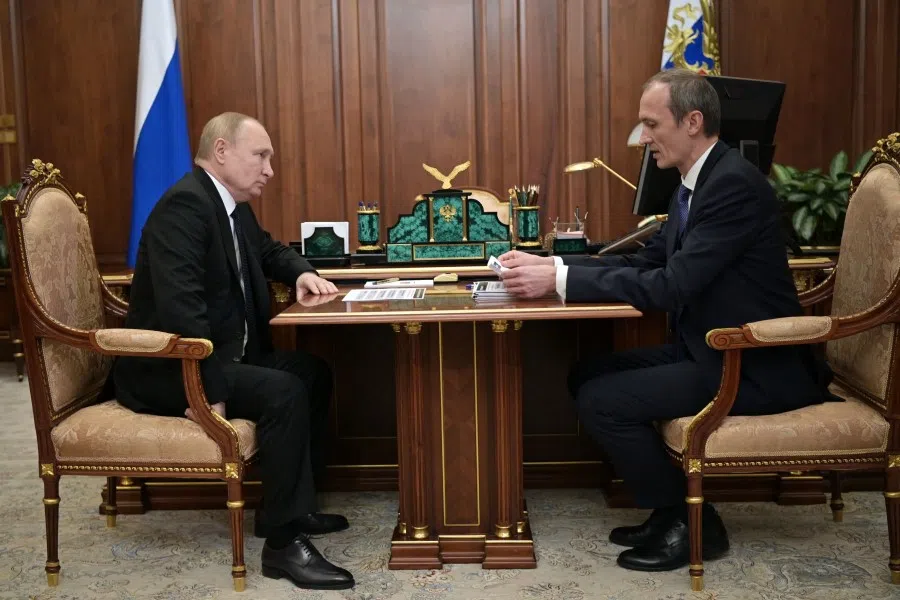
In August 1991, Ukraine officially left the Soviet Union and established itself as a republic, and on 8 December that year, Ukraine, Russia and Belarus signed the Belovezh Accords in Belovezhskaya Pushcha (Bialowieza Forest), Belarus, declaring the dissolution of the Soviet Union and the establishment of the Commonwealth of Independent States. The accords clearly state the following terms: the signatories are bound by the UN Charter; the Soviet Union ceases to exist as a subject of international law; and the signatories mutually acknowledge and respect territorial integrity and the inviolability of current borders.
After the Russia-Ukraine war broke out, Putin put Russia's nuclear deterrence forces on high alert and threatened that a confrontation between US and Russian troops might spark a Third World War. Russian armoured vehicles, missiles and paratroopers are directed at Kyiv, and its troops have been indiscriminately bombing Ukraine and shooting at the civilians. In negotiations to end the conflict, Putin has proposed three conditions to Kyiv: denazification, demilitarisation and declaring neutrality.
A humanitarian disaster
The conflict has led to a serious humanitarian disaster, with over three million people fleeing Ukraine and many left homeless, as well as the death of between 2,000 and 4,000 Russian soldiers. (NB: According to The Economist, Pentagon's Defence Intelligence Agency has put the count at between 2,000 and 4,000 in the war's first 11 days. The New York Times reports that the American estimate has since risen to more than 7,000.) Russia is also feeling the major impact of the economic sanctions. Analysts believe that Putin's offensive against Ukraine has done significant damage to Russia's economy and will lead to its continued decline.
According to reports, Putin's forces have continued to pummel Kyiv and other cities across Ukraine as representatives from both countries met for a fourth round of talks this week. Despite the huge difference in strength, the Russian troops have not been able to advance quickly, while NATO-supported Ukraine has said that it will not surrender.
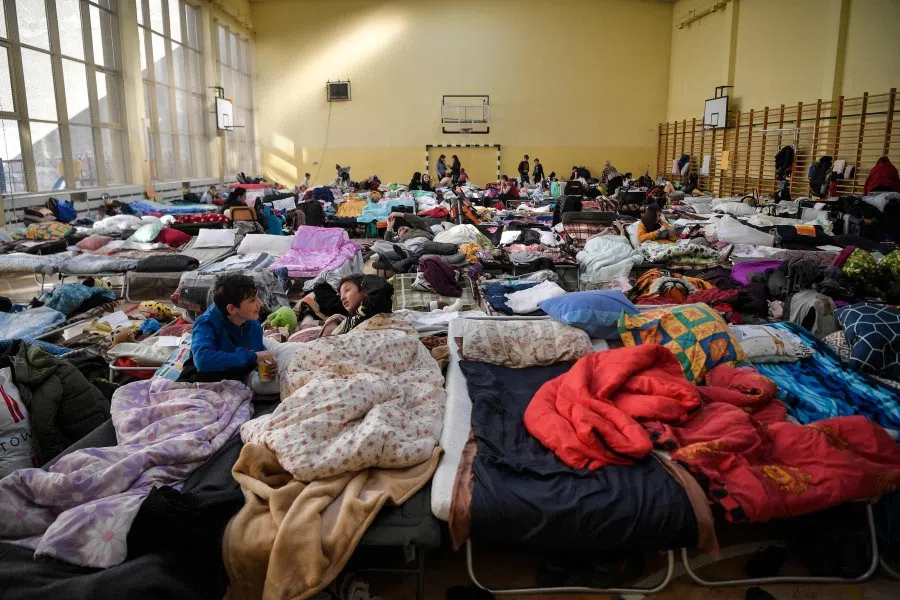
Numerous UN member states and multinational companies have either publicly denounced Russia's invasion of Ukraine or imposed sanctions on Russia. (NB: Russia has officially become the most sanctioned country in the world, surpassing Iran, Syria and North Korea. The country has been subjected to over 5,000 crippling sanctions, of which 2,778 were introduced after 22 February, according to data from Castellum.AI. A Yale University list shows that about 300 companies have withdrawn from Russia because of the war.)
On 26 February, Western countries excluded major Russian banks from the SWIFT messaging network, while the European Union (EU) froze European assets linked to Putin and Russian Foreign Minister Sergey Lavrov. On 9 March, the US and the UK started energy sanctions on Russia; the EU also set a strategic plan to end reliance on Russia for natural gas. Furthermore, Fitch Ratings has downgraded Russia's credit to "C". In retaliation, on 15 March, Russia imposed sanctions against a wide range of US officials, including President Joe Biden, marking another escalation in tensions.
... if fighting breaks out in the Taiwan Strait, the US and its allies are likely to take three courses of action: one, not clearly supporting independence for Taiwan; two, imposing major sanctions on China; three, giving Taiwan military support such as aircraft, vessels, weapons and funding.
What will US bring to the table?
So far, the US, EU and NATO have taken three key approaches to the Russia-Ukraine conflict: one, ramping up sanctions against Russia and hitting it hard economically and financially to get it to withdraw its troops; two, providing military support such as aircraft, weapons and funding to Ukraine in waging a no-contact warfare with Russia; three, not declaring acceptance of Ukraine to NATO.
The actions of the US and NATO so far will be an important precedent for the Taiwan Strait. That is, if fighting breaks out in the Taiwan Strait, the US and its allies are likely to take three courses of action: one, not clearly supporting independence for Taiwan; two, imposing major sanctions on China; three, giving Taiwan military support such as aircraft, vessels, weapons and funding.
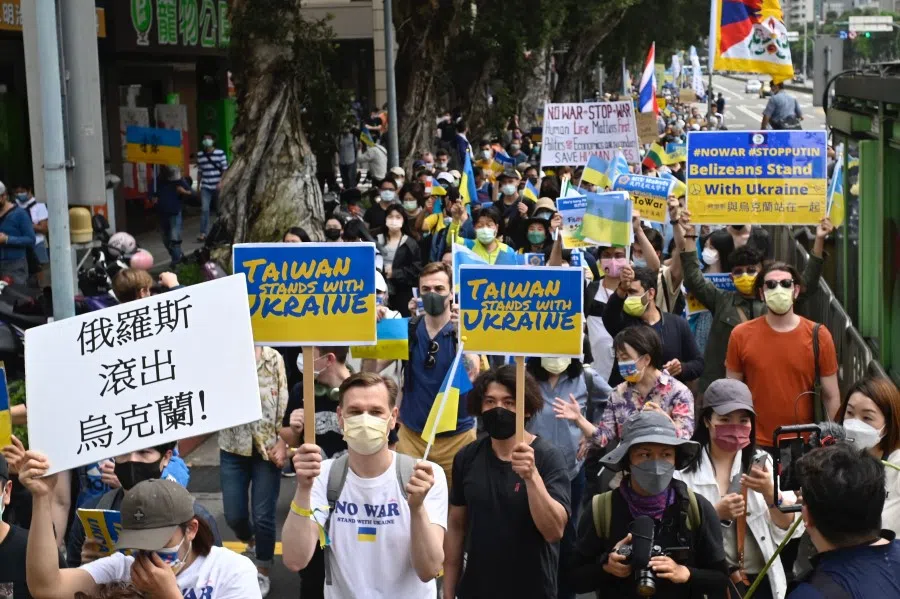
It can be seen that if mainland China does not quickly end the offensive against Taiwan and take control of it, two major consequences might arise: one, the domestic economy would be severely damaged due to sanctions and containment by the US and its allies; or two, if the fighting goes on for over three months, there would be great pressure in terms of domestic social order, politics, economy, and especially international political and diplomatic relations.
Even if mainland China gains absolute military victory in the short term and takes control of Taiwan, there is another pressing issue: how will Taiwan be governed and under what kind of system? This question is no less difficult - or even more difficult - than military action, and might face long-term interference by anti-reunification forces.
Decline and failure for Putin's Russia?
However, the Ukraine issue and the Taiwan issue are very different. On the one hand, the separation of Taiwan and mainland China is a domestic political dispute left over from China's civil war. On the other hand, Ukraine is a sovereign country.
By launching a military invasion of a sovereign state during this vulnerable time when the whole world is still suffering from the severe pandemic, Putin has caused mental hurt to the psyche of the global community regardless of ideological differences. No matter how the Russia-Ukraine war ends, he has started a process that will lead to the decline and failure of his political career as well as the whole of Russia.
The Russia-Ukraine war shows that Moscow has no regard for the current progress of human civilisation, the reality of a shared global human destiny, or the general safety of the international community.
Even if Russia captures the whole of Ukraine, any real national benefit it gains would not make up for the enormous and sustained losses, both direct and indirect, resulting from the possible long-term sanctions and isolation from the international community and the consequent national stagnation.
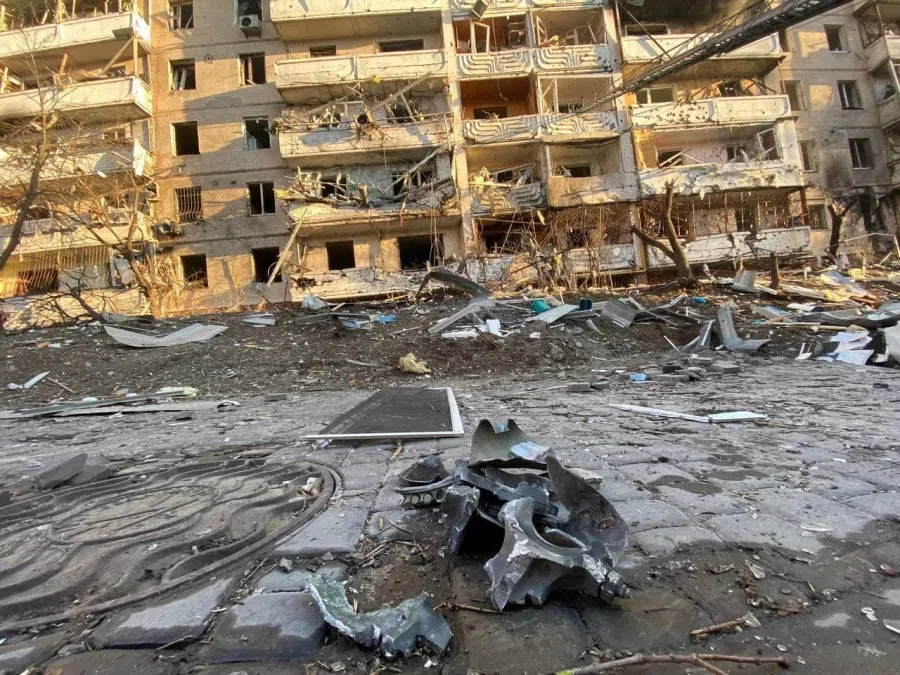
It remains asleep amid dreams of the past days of the tsars. In its eyes, besides the people of Russia, there is no Ukraine, no Europe, no US, no China - there is no consideration for the right of any other group to exist. As a permanent member of the UN Security Council, how does Russia justify its actions? It is clear that Putin is not a world leader who cares for the common good.
Even if Russia captures the whole of Ukraine, any real national benefit it gains would not make up for the enormous and sustained losses, both direct and indirect, resulting from the possible long-term sanctions and isolation from the international community and the consequent national stagnation. The fact is, Russia's real national security considerations are not about whether Ukraine will join NATO, but about Russia's own national direction and its global policy or perspective.
In the current circumstances, a more feasible solution or end to the Russia-Ukraine war is for China, France or Germany - countries that are acceptable to Russia and Ukraine - with the support of the UN General Assembly, to mediate talks between Russia and Ukraine to reach a ceasefire agreement covering the following three conditions: one, for Russia to stop fighting and withdraw its troops; two, for NATO to postpone talks of Ukraine membership for the next 20 to 30 years; three, for Russia to make appropriate reparations to Ukraine.
This solution would be good for all parties and would maintain basic international order. As for Putin's proposal that Ukraine should demilitarise and declare itself neutral, it is clear that Ukraine, NATO and the US would all not agree to it.



![[Big read] When the Arctic opens, what happens to Singapore?](https://cassette.sphdigital.com.sg/image/thinkchina/da65edebca34645c711c55e83e9877109b3c53847ebb1305573974651df1d13a)
